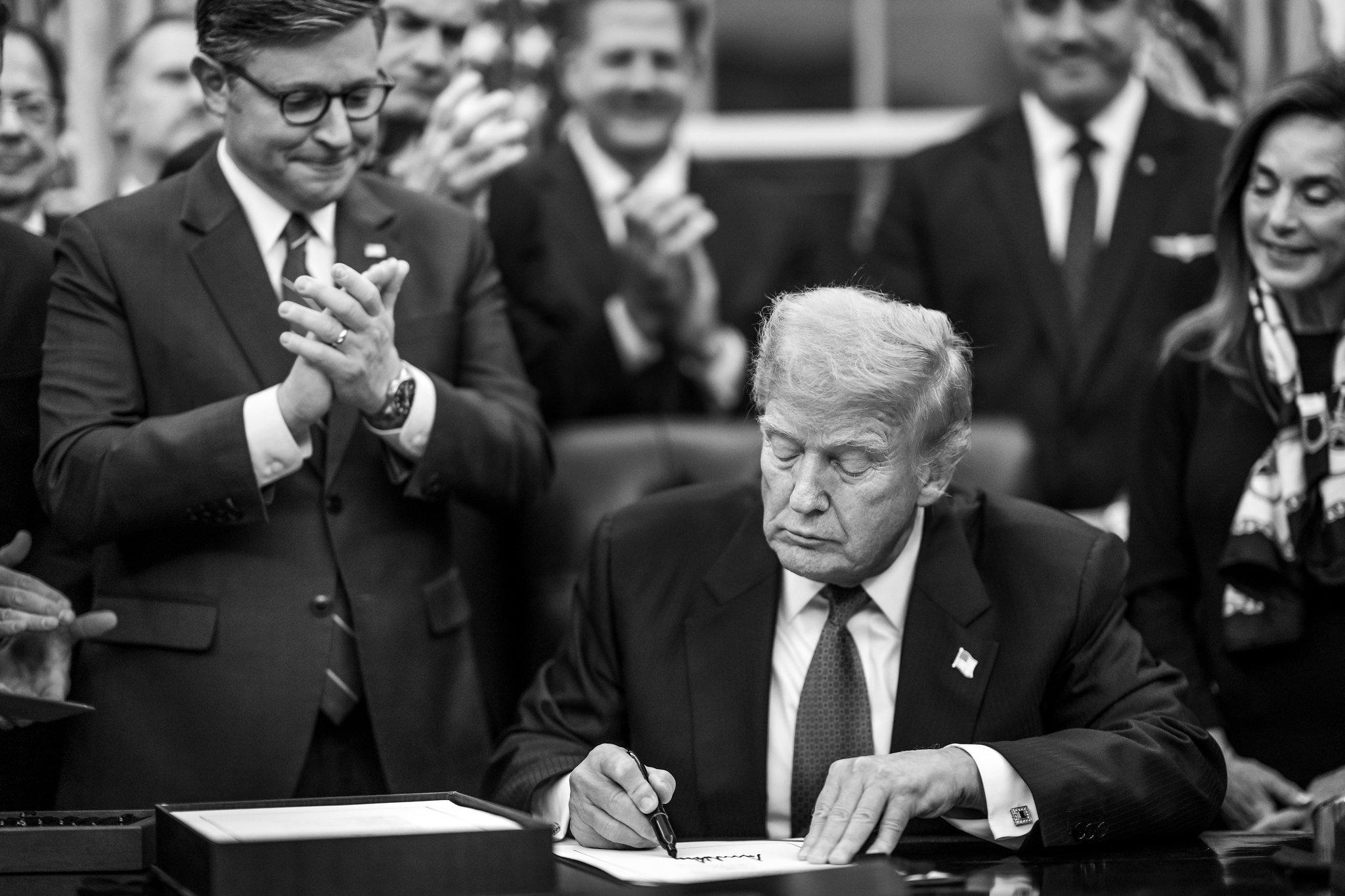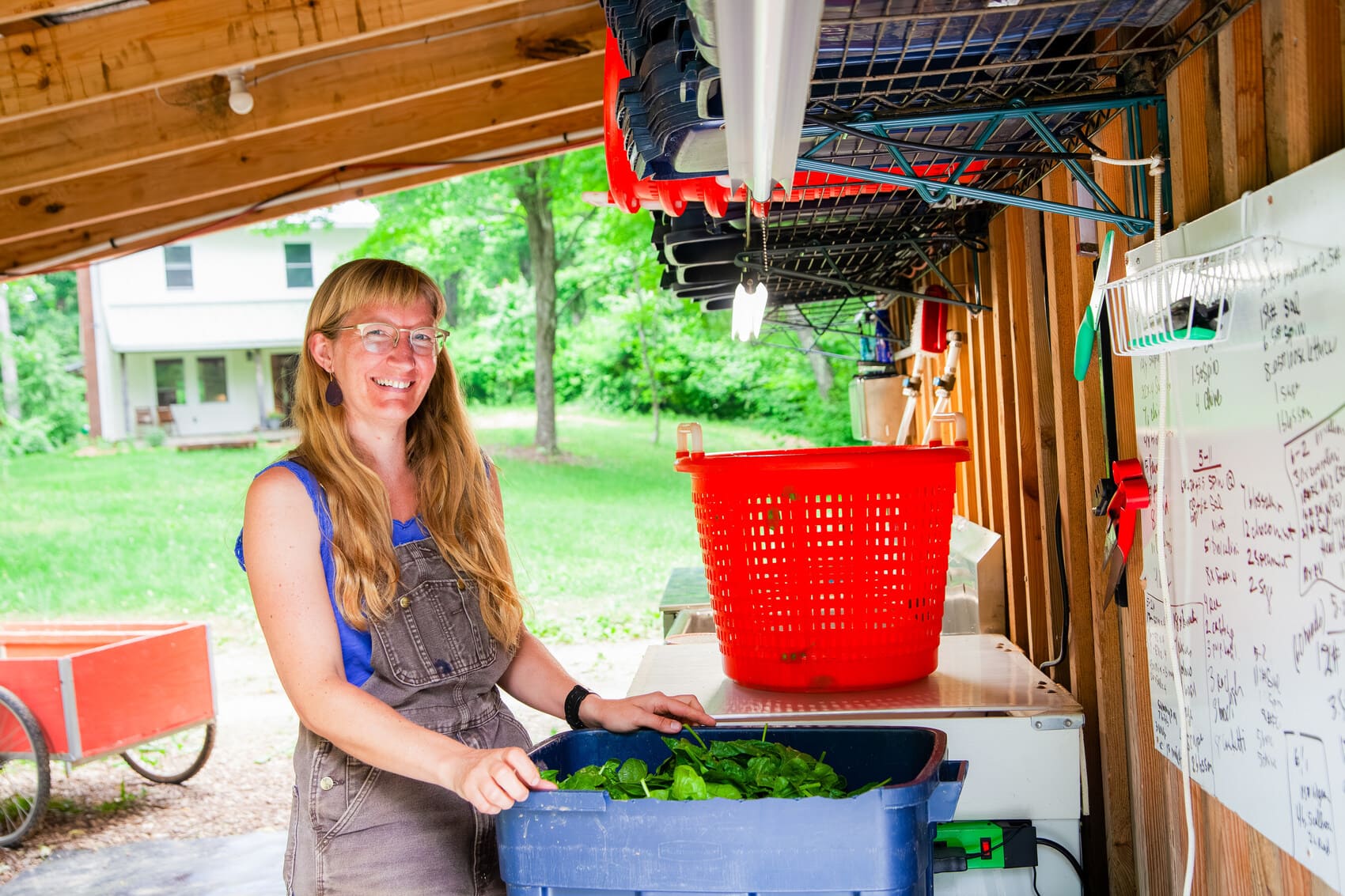
President Donald Trump signs the funding bill that reopens the government alongside Speaker of the House Mike Johnson, Wednesday, November 12, 2025, in the Oval Office. (Official White House Photo by Daniel Torok)
President Trump Cuts Tariffs on Dozens of Imported Goods in Effort to Ease Grocery Prices
President Donald Trump on Friday signed a new executive order eliminating tariffs on a wide range of imported goods, a move the administration says is aimed at bringing relief to Americans frustrated by persistently high grocery prices.
The order lifts duties on scores of products including coffee, tea, beef, bananas, tropical fruits, wood, and iron—a notable shift from Trump’s broader trade strategy, which has emphasized tariffs as a tool for strengthening U.S. leverage in global markets.
The decision marks a partial reversal of the sweeping global tariff framework Trump announced in April, much of which took effect in early August and applied to roughly 90 countries. Implementation of that policy had been delayed several times amid pushback from Republicans and financial markets unsettled by the prospect of widespread price increases.
The April announcement triggered weeks of market volatility, and in recent months companies producing everyday consumer items warned that prolonged tariffs would force them to raise prices. Those increases have been increasingly visible to American shoppers, becoming a source of political pressure on the administration.
New Agreements With Latin American Partners
The tariff rollback comes just one day after the administration said it reached new framework agreements with Argentina, El Salvador, Ecuador and Guatemala. The deals are designed to ease or eliminate tariffs on goods that are not produced domestically in the United States.
A senior administration official said baseline tariff levels will remain 10% for goods from Argentina, El Salvador and Guatemala, and 15% for goods from Ecuador. However, the new agreements will allow for exceptions on key imports such as bananas, coffee and cocoa, enabling tariffs to be reduced or waived entirely.
Political and Economic Context
While Trump campaigned aggressively in 2024 on reducing costs for American families, recent polling suggests many voters remain skeptical. An NBC News national survey released earlier this month found that 63% of voters believe the president has not delivered on managing the economy and reducing the cost of living.
The tariff changes come on the heels of last week’s off-year elections, where Republicans underperformed Democrats on the issue of affordability—a result analysts say reflects deep voter concern about day-to-day expenses.
Trump has pushed back on criticism, insisting that prices are trending downward and accusing Democrats of misleading the public. “It’s a con job,” he has said of Democratic messaging on inflation and household costs.
Looking Ahead
The administration says Friday’s executive order is part of a broader push to stabilize prices and ease financial pressure on families, though officials did not rule out further adjustments to the trade framework in the coming months.
-

NEWSROOM
We are a dynamic daily channel dedicated to delivering essential insights on economics, business, and politics—empowering professionals and decision-makers to navigate a complex and fast-evolving world. Our content blends in-depth reporting, exclusive analysis, and strategic interviews to help readers stay informed, anticipate opportunities, and make smarter decisions. Connect with us at info@moneyinfocus.news
to collaborate or learn more.














